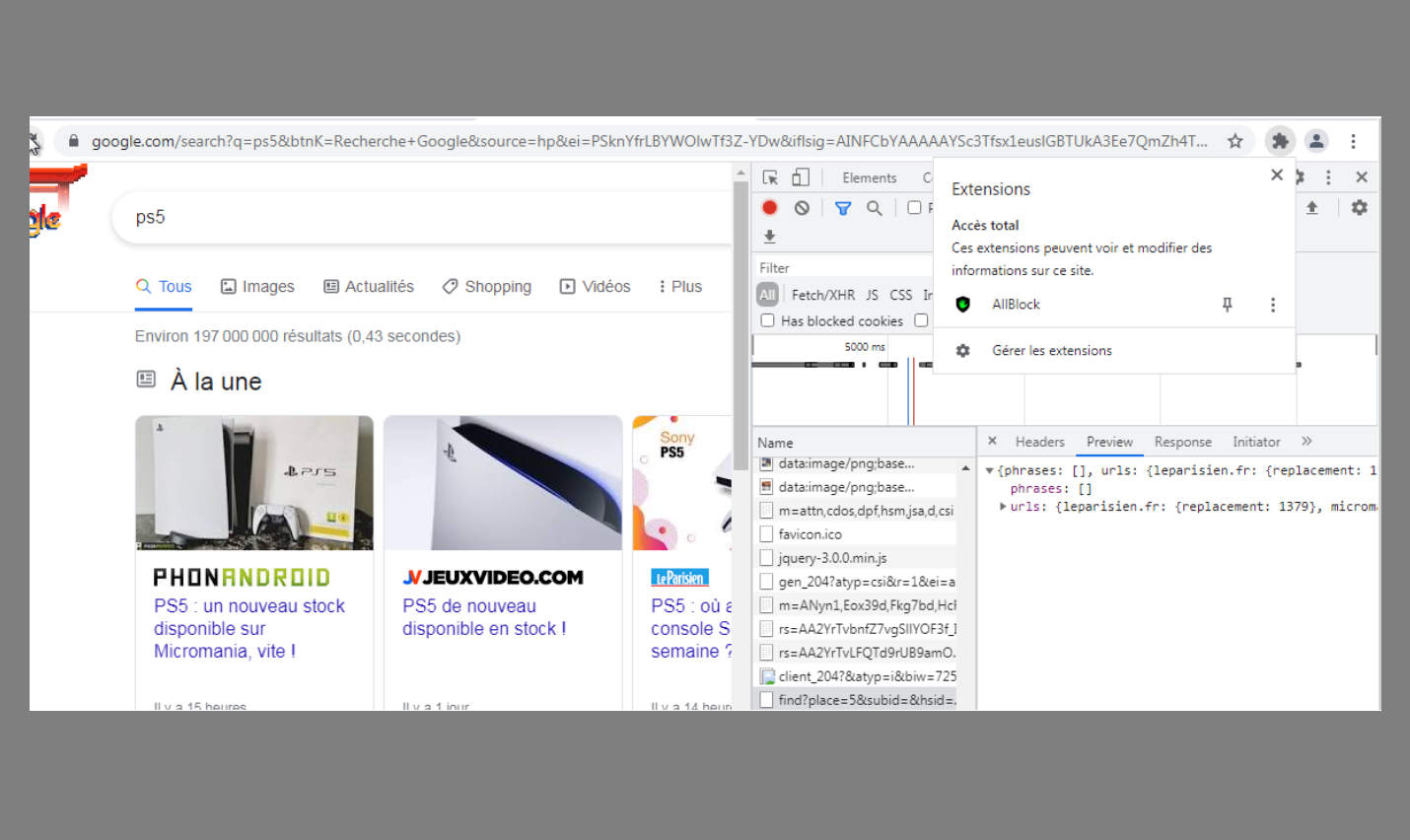A malicious browser extension meant to act as an ad-blocker was exposed and found to be injecting advertisements and referral affiliate codes inside Search results
Cybercrime is experiencing wave over wave of increased incidence as every year, or even every month, goes by. While the current example we'll be discussing may not constitute a crime in the strictest sense of the word, it is still very much a apart of the same world of phishing attacks, brute force password breaks, and hacker groups running amok online. False advertising has always been a part of the internet, but its prevalence is reaching unbearable levels. What's worse, however, is using that very false advertising as a way of sneaking in more advertising to a user. Because in 2021, as we recover from a collective sense of financial loss and the USA faces a drought of working people, what we of course need is more ads to clog up our laptops and mobiles. A sarcastic thank you to the developers who made this.
This discovery was put together by cybersecurity firm Imperva, and the ad-blocker at hand is called AllBlock. AllBlock is available as an extension of both the Chrome and the Opera browser. The discovery was made all the way back in August, when Imperva realized that one of the domains held the capability of injecting ads into the browser. The findings, published by researchers Johann Sillam and Ron Masas, went into great detail over the ad-blocker extension's purpose, and how it would go about achieving that very purpose.
The entire process isn't particularly difficult to understand either. It all starts with AllBlock being downloaded. The extension, upon entering a user's desktop or mobile device , deactivates all other forms of ads, as is its purpose. However, in that time AllBlock would also collect a list of URLs that ended up being blocked. These would circle back to an extensive database of other URLs, which would be switched for the originals. This way, users would feel no form of ad-blocking to be encountered, and would constantly run into links that the hackers want us to pay attention to in the first place.
Opera has removed AllBlock in its entirety from the browser. Chrome, however, still had access to the accursed project. Developers working on AllBlock have not cared to make a public statement yet either.
Read next: A Google Research Reveals That Over 50K Users Have Been Adversely Affected By State Sponsored Cyber Security Threat Groups
Cybercrime is experiencing wave over wave of increased incidence as every year, or even every month, goes by. While the current example we'll be discussing may not constitute a crime in the strictest sense of the word, it is still very much a apart of the same world of phishing attacks, brute force password breaks, and hacker groups running amok online. False advertising has always been a part of the internet, but its prevalence is reaching unbearable levels. What's worse, however, is using that very false advertising as a way of sneaking in more advertising to a user. Because in 2021, as we recover from a collective sense of financial loss and the USA faces a drought of working people, what we of course need is more ads to clog up our laptops and mobiles. A sarcastic thank you to the developers who made this.
This discovery was put together by cybersecurity firm Imperva, and the ad-blocker at hand is called AllBlock. AllBlock is available as an extension of both the Chrome and the Opera browser. The discovery was made all the way back in August, when Imperva realized that one of the domains held the capability of injecting ads into the browser. The findings, published by researchers Johann Sillam and Ron Masas, went into great detail over the ad-blocker extension's purpose, and how it would go about achieving that very purpose.
The entire process isn't particularly difficult to understand either. It all starts with AllBlock being downloaded. The extension, upon entering a user's desktop or mobile device , deactivates all other forms of ads, as is its purpose. However, in that time AllBlock would also collect a list of URLs that ended up being blocked. These would circle back to an extensive database of other URLs, which would be switched for the originals. This way, users would feel no form of ad-blocking to be encountered, and would constantly run into links that the hackers want us to pay attention to in the first place.
Opera has removed AllBlock in its entirety from the browser. Chrome, however, still had access to the accursed project. Developers working on AllBlock have not cared to make a public statement yet either.
Read next: A Google Research Reveals That Over 50K Users Have Been Adversely Affected By State Sponsored Cyber Security Threat Groups

